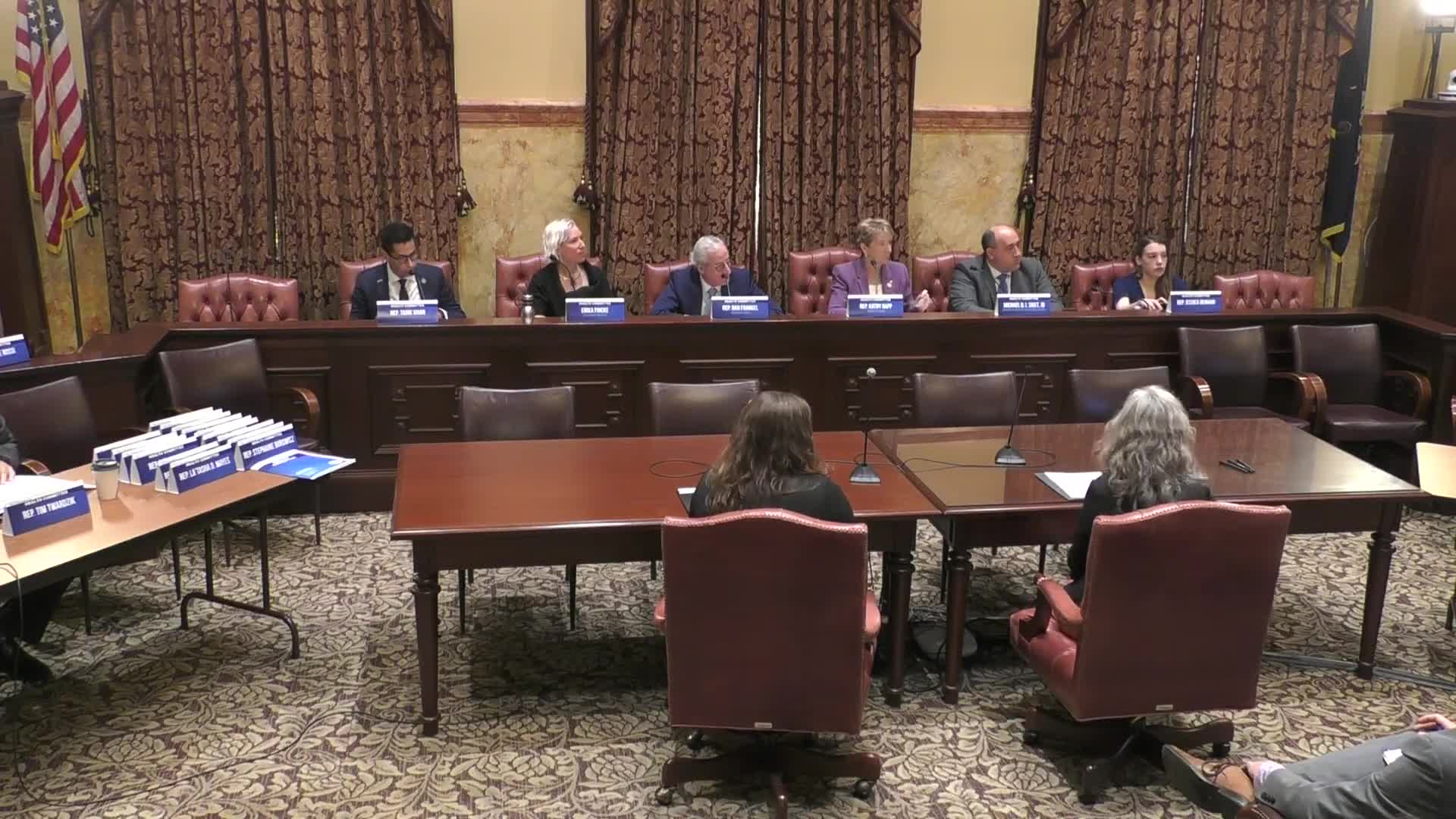Panel and health officials defend technical-advisory path for adding newborn screens
Get AI-powered insights, summaries, and transcripts
Subscribe
Summary
The Pennsylvania House Health Committee heard competing testimony about whether to add conditions to the newborn screening panel by legislative mandate or through the state’s advisory process, with state officials urging the technical advisory board’s scientifically based review and advocates pressing for speed and transparency.
The Pennsylvania House Health Committee heard competing views Friday about how the commonwealth should add conditions to its newborn screening panel, with state officials urging adherence to an expert advisory process and advocates arguing the Department of Health should move more quickly on some disorders.
The panel’s opening witness, Gerald Vockley, MD, Cleveland Family Endowed Professor in Pediatric Research at the University of Pittsburgh School of Medicine and former chair of the Pennsylvania Newborn Screening Technical Advisory Board, said the TAB’s role is to provide scientifically rigorous review of proposed additions to the screening panel. "Newborn screening has been identified by the Center for Disease Control as 1 of the top 10 public health efforts of the twentieth century," he said, describing the board’s statutory advisory duties and its process for reviewing nominations.
The dispute before the committee centered on whether the legislature should mandate additions or let the expert advisory process operate. Lisa Brackbill, a parent advocate who helped win passage of Act 133 of 2020, urged lawmakers not to replace the advisory pathway with a legislative mandate. "This is what Act 1 33 did. It empowered the advisory board and the department of health Department of Health to add new conditions based on scientific and clinical evidence, removing the need for legislative mandate," she said in testimony recounting the five‑year effort that led to the law.
Department of Health pediatrician and Secretary Deborah Bogan described the mechanics of Pennsylvania’s program and the TAB’s legal role. She told members the state operates three program components: blood spot testing (more than 40 conditions), screening for critical congenital heart defects by pulse oximetry, and newborn hearing screening. The department "successfully screens over 95 percent of all the newborns born in the state of Pennsylvania for all 3 components," she said. Bogan also reiterated that Act 133 requires the department to add conditions included on the federal Recommended Uniform Screening Panel (RUSP) within two years but that the state retains a nomination path for other conditions.
Officials acknowledged the TAB process can be slow. Dr. Vockley and the secretary said the board may revisit applications where new evidence is submitted and that additional transparency and scheduling improvements were possible. In response to committee requests, Secretary Bogan agreed to consult program staff and return a timeline to the committee about re‑reviewing pending nominations.
Committee members and witnesses also discussed practical constraints: a shortage of pediatric subspecialists for follow-up, the program’s operating costs, and the marginal cost of adding tests. Bogan said the current cost structure splits screening costs roughly between health-care providers and the state, and estimated the program’s screening cost at about $57 paid by health-care providers and $57 paid by the state per infant; she added that each new test typically increases per‑infant cost by approximately $6 to $8.
Members left the hearing with a clearer picture of how Pennsylvania’s newborn screening system works and with a request that the department provide an expedited timeline for the TAB’s re‑review of specific nominations.
The committee did not take formal action on legislation during the hearing.
